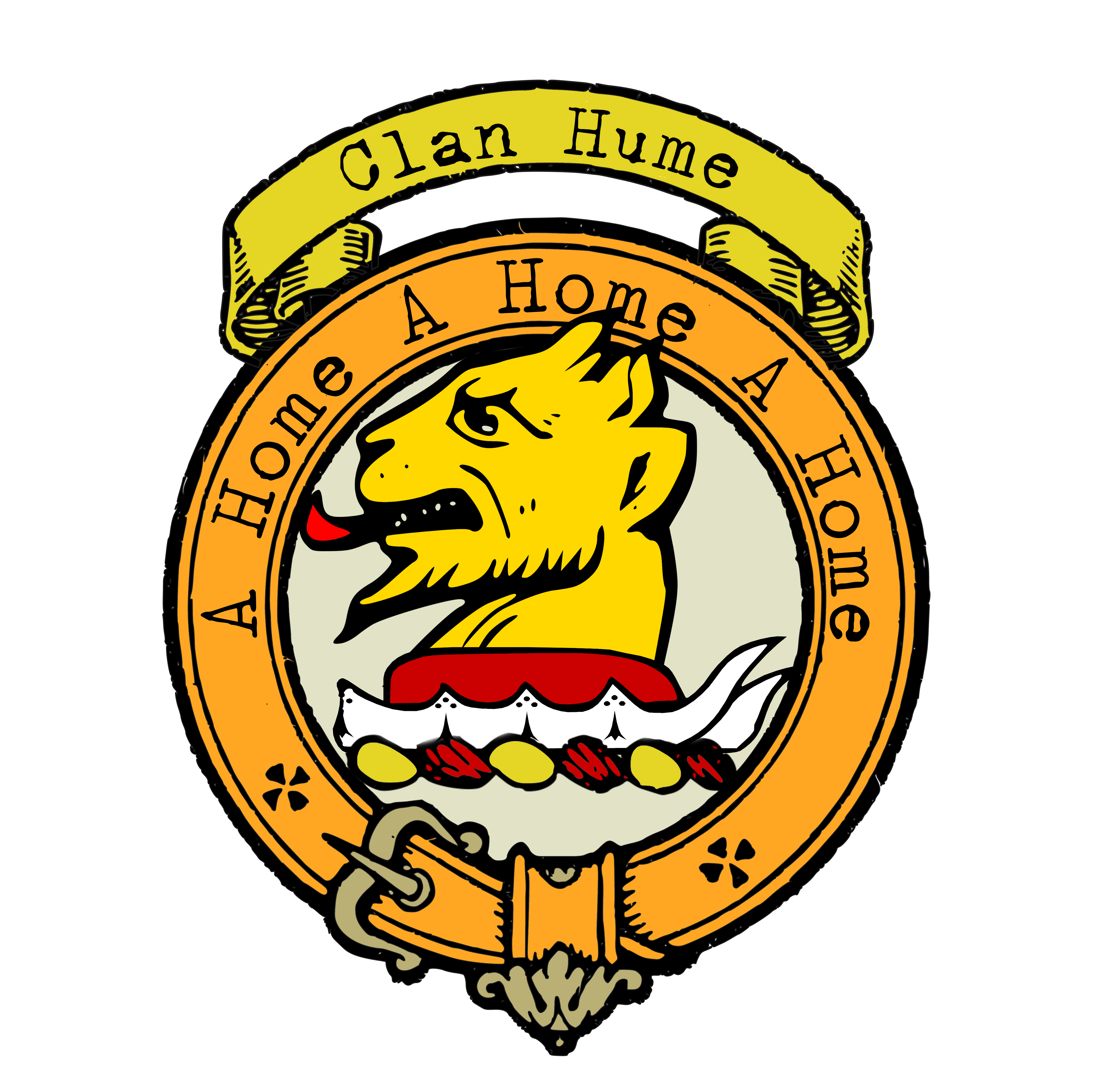Hume Clan Crest
|
|
CREST: Dexter, on a cap of maintenance Proper, a lion’s head erased Argent MOTTO: A Home • A Home • A Home TRANSLATION: N/A VARIATIONS: Home |
| Scottish clans hold a special place in the country’s history, and one such clan that has left an indelible mark is Clan Hume. Originating from the Scottish Borders, the Humes have a long and illustrious history, with their roots tracing back to the Saxon Princes of Northumberland through Cospatrick, Earl of Dunbar.
The earliest records of the Hume family can be found prior to 1266 when William de Home appears in land grants to the Monastery at Coldstream. The family’s prominence continued to grow over the years, with notable figures emerging in different periods. |
|
 |
|
| Purchase @ Redbubble Purchase @ Amazon.com Purchase @ Amazon.co.uk |
|
| One such figure was Sir Thomas, son of Geoffrey de Home, who married the heiress to the Pepdie estate of Dunglass. The family’s association with Dunglass would become significant in shaping their future.
In the 15th century, Sir Alexander Home of Dunglass, a grandson of Sir Thomas, played a pivotal role in the clan’s history. He fought in the Battle of Homildon in 1402 and later followed the Earl of Douglas to France, where he met his demise on the battlefield in 1424. He left behind three sons, from whom most of the principal branches of the family would descend. The eldest grandson of Sir Alexander Home was granted the title “Lord Home” in 1473, elevating the family’s status. Lord Home participated in the rebellion against James III and led the vanguard of Scots knights at the Battle of Flodden in 1513. Although he survived, many of his family and supporters perished in the battle. However, the fortunes of the Homes took a dramatic turn when Lord Home and his brother were accused of conspiring with the English and were executed for treason in 1516. Despite this setback, the title and estates were later restored to George Home, another brother. George Home continued to lead his Border spearmen against the English. Throughout the 16th century, the Humes experienced shifting allegiances due to the complex political landscape. Lord Home, the sixth in line, remained loyal to James VI and became a favorite of the monarch. In recognition of his loyalty, Lord Home was elevated to the title of Earl of Home in 1605. The clan’s loyalty to the crown was evident even during turbulent times, such as the Jacobite risings. The seventh Earl was imprisoned during the 1715 rising, while the eighth Earl fought for the government forces in the Battle of Preston in 1745. The eighth Earl rose to the rank of Lieutenant General and served as Governor of Gibraltar until his death in 1761. In the 18th century, Clan Hume produced notable figures beyond their political and military pursuits. Henry Home, who took the title Lord Kames, was a distinguished lawyer and author, renowned for his works on Scots Law. Another luminary was David Hume, a philosopher who made significant contributions to British philosophy. The Hume family continued to leave their mark in more recent times. The fourteenth Earl of Home, Sir Alec Douglas-Home, disclaimed his hereditary peerage to become the Prime Minister of the United Kingdom. His brother, William Douglas-Home, achieved distinction as an author and playwright. |
|
Citations:
|
|

